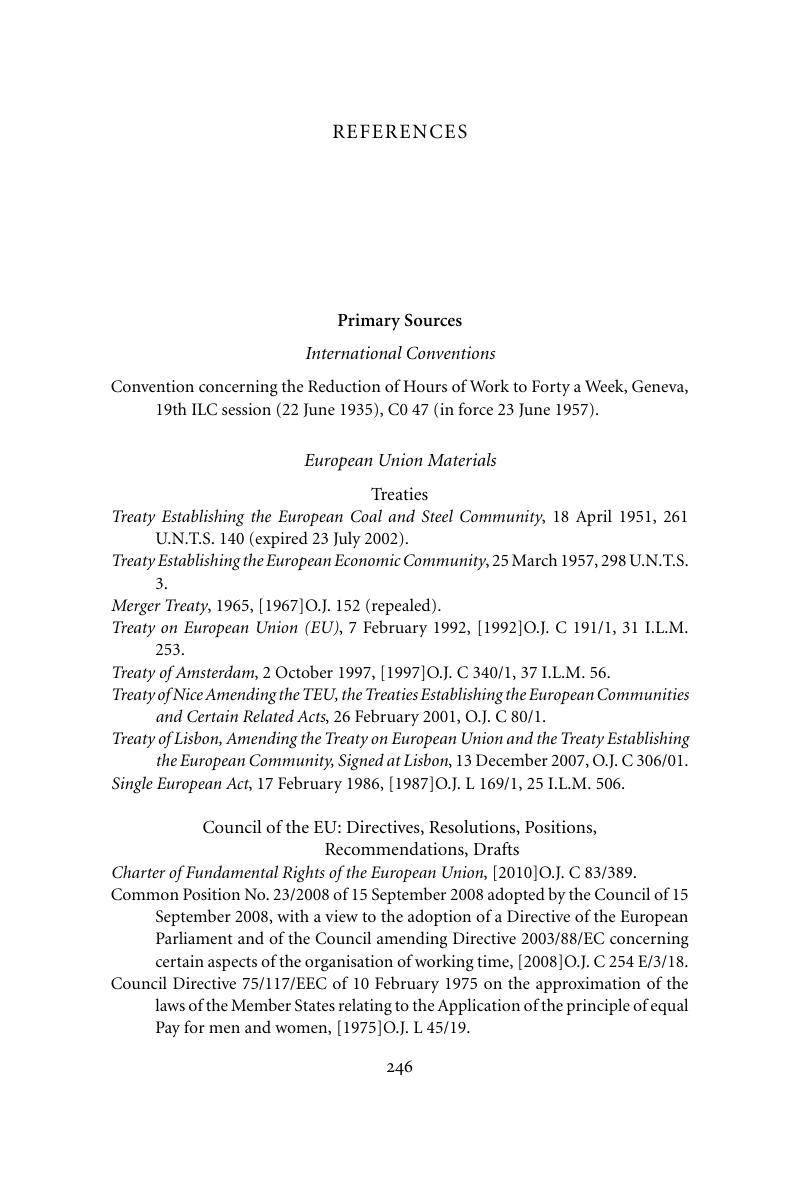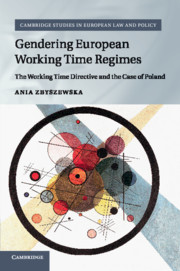Book contents
- Gendering European Working Time Regimes
- Cambridge Studies In European Law And Policy
- Gendering European working time regimes
- Copyright page
- Dedication
- Contents
- Tables
- Acknowledgements
- Abbreviations
- Table of Cases
- Introduction
- 1 Theorizing the Gendered Politics of Working-time Regulation in Multi-level Contexts
- 2 The European Union Universe of Political Discourse on Working Time – from Security to Flexibility and Beyond
- 3 The European Union Working Time Directive – Laying the Gender-neutral Foundation for a Flexible Working-time Regime
- 4 Polish Working-time Regime from Socialism to the Liberal Democracy – Long Hours, Women's Double Burden, and Social Reproduction
- 5 Consolidating Flexibility – Polish Working-time Regime, Gender, and Social Reproduction in the Run-up to and Since the European Union Accession
- 6 Social Reproduction, Gender, Working-time Regulation – Change on the Bedrock of Continuity
- Appendix A Statistical Tables
- Appendix B Key Features of the Polish Working-time Regime Over the Years
- Appendix C Key Labour Code Amendments 2001–2009 Provisions on Working Time and Work–family Reconciliation
- References
- Index
- Books in the series
- References
References
Published online by Cambridge University Press: 05 August 2016
- Gendering European Working Time Regimes
- Cambridge Studies In European Law And Policy
- Gendering European working time regimes
- Copyright page
- Dedication
- Contents
- Tables
- Acknowledgements
- Abbreviations
- Table of Cases
- Introduction
- 1 Theorizing the Gendered Politics of Working-time Regulation in Multi-level Contexts
- 2 The European Union Universe of Political Discourse on Working Time – from Security to Flexibility and Beyond
- 3 The European Union Working Time Directive – Laying the Gender-neutral Foundation for a Flexible Working-time Regime
- 4 Polish Working-time Regime from Socialism to the Liberal Democracy – Long Hours, Women's Double Burden, and Social Reproduction
- 5 Consolidating Flexibility – Polish Working-time Regime, Gender, and Social Reproduction in the Run-up to and Since the European Union Accession
- 6 Social Reproduction, Gender, Working-time Regulation – Change on the Bedrock of Continuity
- Appendix A Statistical Tables
- Appendix B Key Features of the Polish Working-time Regime Over the Years
- Appendix C Key Labour Code Amendments 2001–2009 Provisions on Working Time and Work–family Reconciliation
- References
- Index
- Books in the series
- References
Summary

- Type
- Chapter
- Information
- Gendering European Working Time RegimesThe Working Time Directive and the Case of Poland, pp. 246 - 289Publisher: Cambridge University PressPrint publication year: 2016



